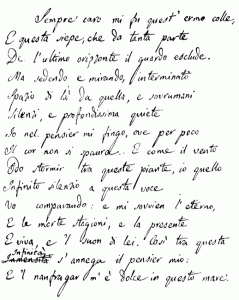Evening
The evening slowly dons the changing clothes
a rim of ancient trees holds out for it;
and as you watch, before you two lands separate,
one travelling heavenwards and one which falls;
and leave you fully part of neither one,
not quite so darkly silent as the house,
not quite so surely summoning eternity
as that which every night becomes a soaring glow;
and leave you (to ungraspably unravel)
your life – fraught, huge and ripening- so that,
now confined now comprehending, it is
alternately a stone inside you and a star.
Translation: Phillip Hill 2018
Listen to the translation here
Der Abend
Der Abend wechselt langsam die Gewänder,
die ihm ein Rand von alten Bäumen hält;
du schaust: und von dir scheiden sich die Länder,
ein himmelfahrendes und eins, das fällt;
und lassen dich, zu keinem ganz gehörend,
nicht ganz so dunkel wie das Haus, das schweigt,
nicht ganz so sicher Ewiges beschwörend
wie das, was Stern wird jede Nacht und steigt –
und lassen dir (unsäglich zu entwirrn)
dein Leben bang und riesenhaft und reifend,
so daß es, bald begrenzt und bald begreifend,
abwechselnd Stein in dir wird und Gestirn
Commentary:
This poem seems to be made of coiled springs, all in tension until the final word.
Rilke uses two words for star: “Stern” and “Gestirn”. “Gestirn” would be, more accurately, “heavenly body” but that is unusable. Therefore, one option, would be to use “star” both in line 8 and in line 12. However, I don’t believe that such a meticulous poet as Rilke would use the same word twice unless he had a clear reason for doing so. In addition, the final “star”, the very last word of the poem, is very strong and feels to me like a firework suddenly going off: “… stone inside you and a star.” Therefore, in order not to dampen the firework with repetition, in line 8, instead of “… becomes a soaring star” I have used “…becomes a soaring glow”. I find this more effective and I believe it gives the sense of the original.
Another word which is difficult is “unsäglich”: “undescribably”, “ineffably” sound very weak to me and I have decided on “ungraspably”, which gives the sense of mystery and also fits in well with what Rilke suggests is the impossible task of unraveling or separating the diverse portions of our living natures.






